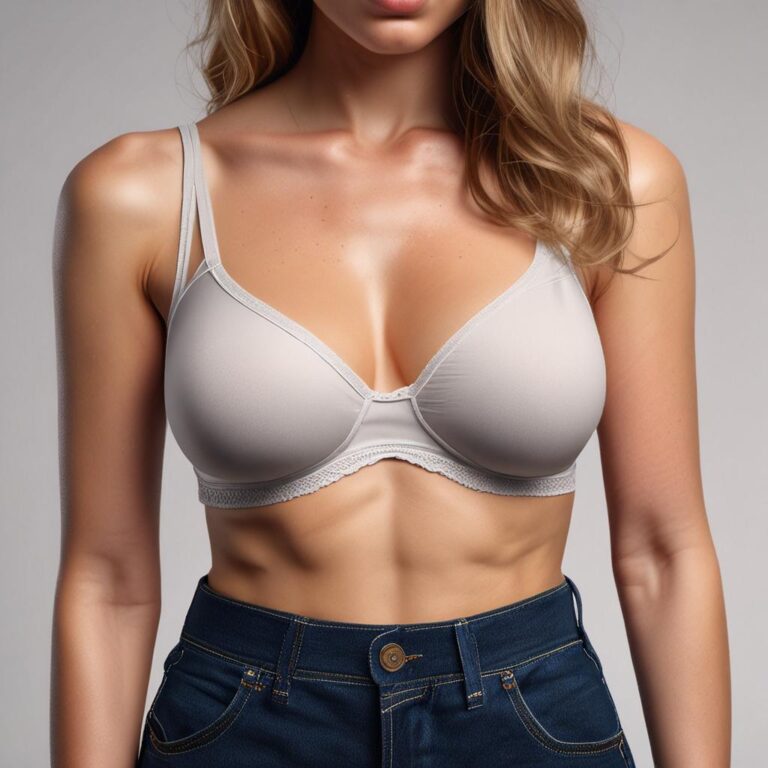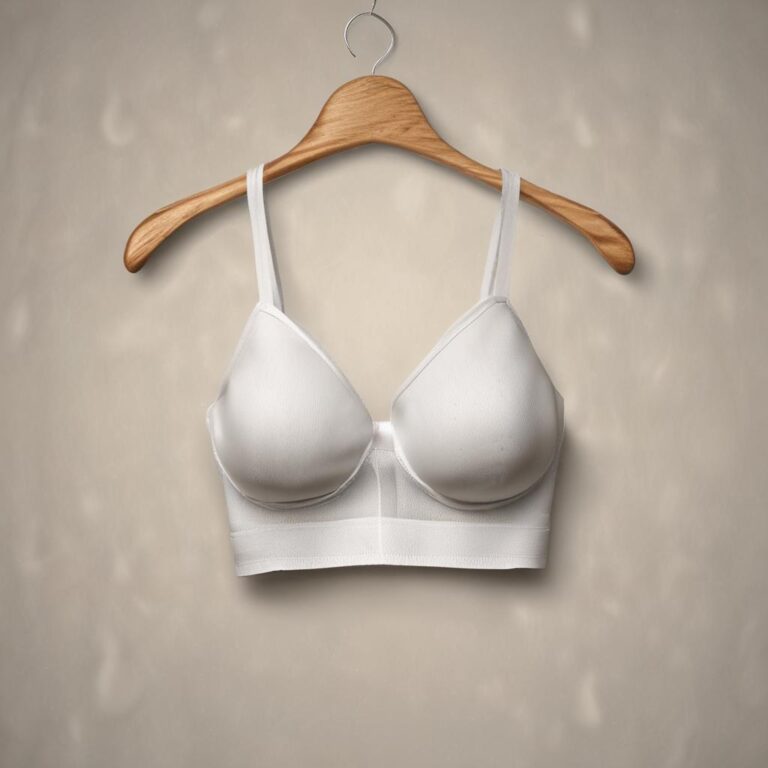Finding the perfect bra starts with knowing your correct bust size. Wearing a bra that fits well is essential for comfort, support, and overall health. An ill-fitting bra can lead to discomfort, back pain, and even poor posture. Whether you’re shopping for everyday wear or a special occasion, accurate measurements ensure you choose the right size. In this guide, we’ll walk you through the simple steps to measure your bust size at home, so you can shop with confidence and enjoy a perfect fit.
Step-by-Step Process
Gather Tools
Use a soft measuring tape and a mirror.
Stand Straight
Keep shoulders relaxed and arms at sides.
Measure Band
Wrap tape snugly under bust for band size.
Measure Bust
Wrap tape loosely over fullest part of bust.
Calculate Size
Subtract band from bust measurement for cup size.
Process infographic for How Do You Measure Your Bust Size for a Bra
Tools You’ll Need for a Bra Size Measurement
A Soft Fabric Tape Measure
A flexible, non-stretchy tape measure is the most effective tool for measuring your bust. Rigid measuring tools can’t contour to your body, leading to inaccurate results. Ensure the tape is snug but not tight for precise measurements.
A Full-Length Mirror
Using a mirror helps you check your posture and ensure the tape is level. This is especially important when measuring the underbust and overbust to avoid skewed results.
A Bra Fitting Guide (Optional)
If you’re new to measuring, a printable bra fitting chart can be a helpful reference. It allows you to cross-reference your measurements with standard sizing charts.
Step-by-Step Guide to Measuring Your Band Size
1. Measure Your Underbust
Wrap the tape measure snugly around your ribcage, just below your bust. Keep the tape parallel to the floor and ensure it’s not too tight or too loose. This measurement is the starting point for determining your band size.
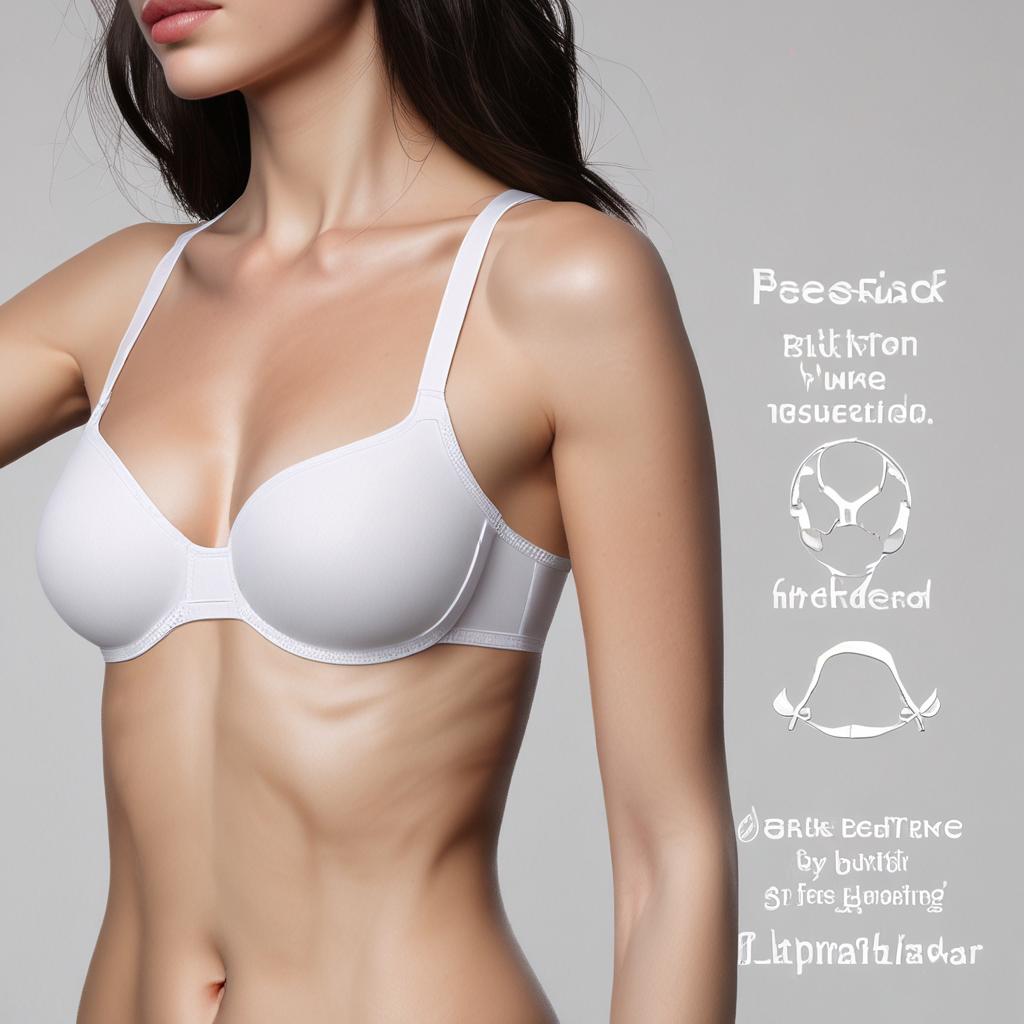
2. Round to the Nearest Whole Number
Band sizes are typically even numbers (e.g., 24, 26, 28). If your measurement falls between sizes, round to the nearest whole number for accuracy.
3. Add 4 Inches for the Band Size
To calculate your band size, add 4 inches to your underbust measurement. For example, if your underbust measures 30 inches, your band size is 34. This adjustment ensures a comfortable fit.
How to Measure Your Cup Size
1. Measure Your Overbust
Wrap the tape around the fullest part of your bust, keeping it parallel to the floor. Avoid lifting your arms or holding your breath, as this can affect the measurement.
2. Calculate the Difference
Subtract your underbust measurement from your overbust measurement. The difference determines your cup size. For example, a 1-inch difference typically corresponds to an A cup, while a 2-inch difference is a B cup.
3. Adjust for Band Size
Remember that cup size is relative to band size. A 34B, for instance, has a smaller cup volume than a 36B. Use a sizing chart to match your measurements to the correct cup size.
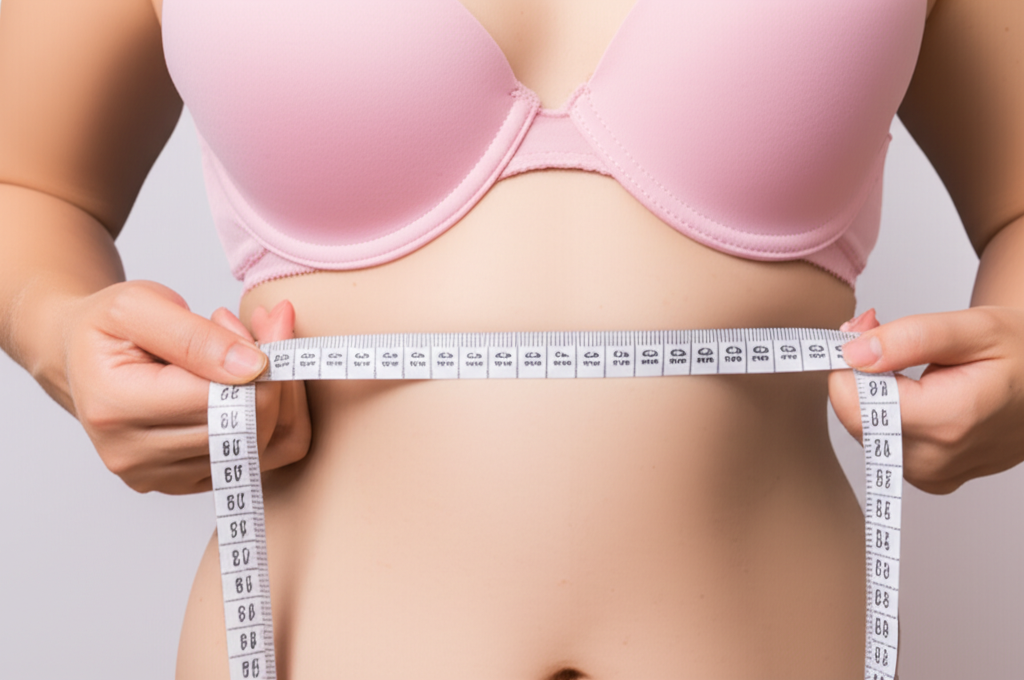
Common Mistakes to Avoid When Measuring
Wearing an Ill-Fitting Bra During Measurement
Wearing a bra that doesn’t fit can skew your measurements. For the most accurate results, measure without a bra or wear a non-padded one.
Incorrect Tape Placement
Ensure the tape is level and parallel to the floor. Slanting the tape or digging it into your sides can lead to inaccurate measurements.
Over-tightening or Loosening the Tape
The tape should be snug but not restrictive. Over-tightening can compress your bust, while a loose tape will give you an incorrect size.
Deciphering Your Bra Size Measurements
Understanding the Band-Cup System
Your bra size combines your band and cup measurements (e.g., 34B). The band size provides support, while the cup size ensures proper coverage.
Different Sizing Systems (US, UK, EU)
Bra sizes vary by region. For example, a US 34B is equivalent to a UK 34B, but the cup sizing may differ in EU systems. Always check the sizing chart of the brand you’re purchasing from.
When to Remeasure
Your bust size can change over time due to factors like weight fluctuations, pregnancy, or aging. Remeasure every 6–12 months or after significant life changes.
Tips for Choosing the Right Bra Based on Your Measurements
Selecting the Correct Band Width
Ensure the band is snug but not tight. It should sit parallel to the floor and provide firm support without digging into your skin.
Ensuring the Cup Fits Without Spillage
The cups should fully encase your bust without spillage or gaps. If the cup is too small or large, adjust the size accordingly.
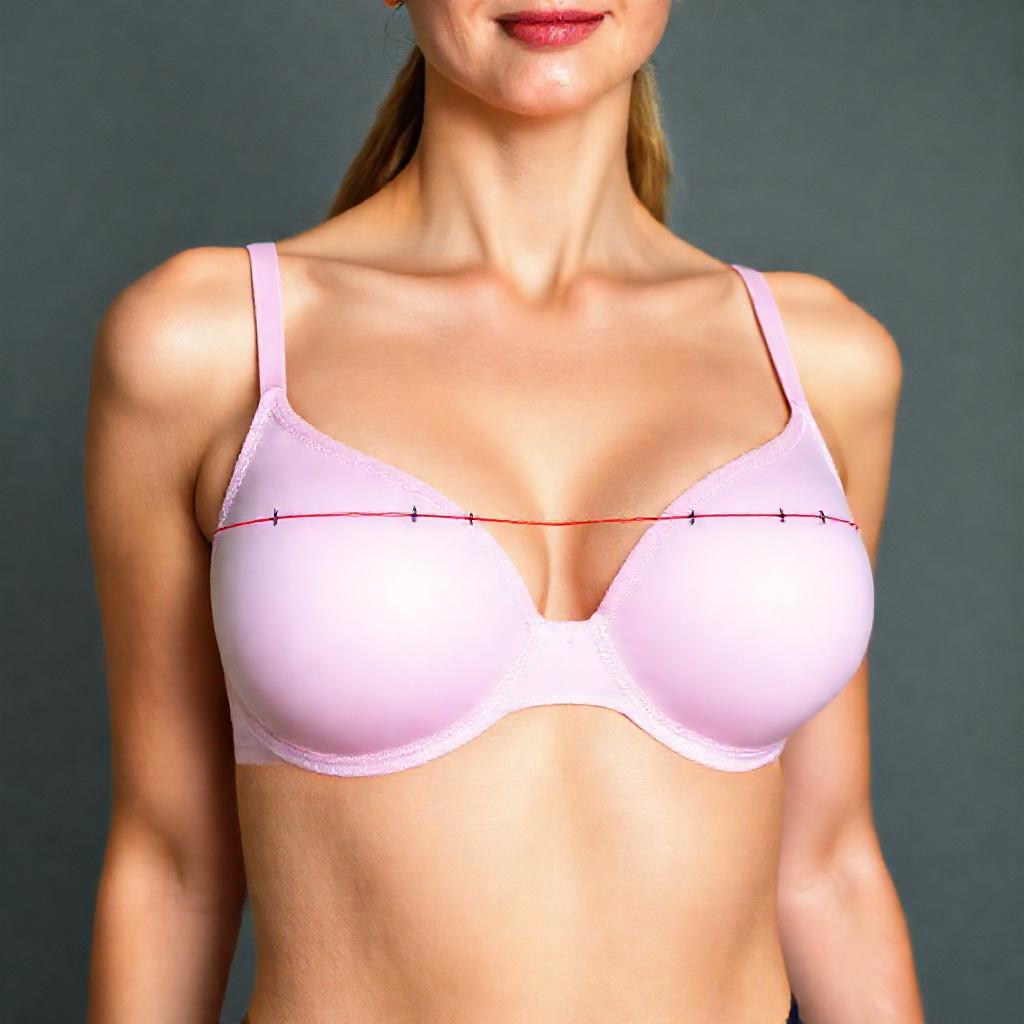
The Role of Bra Style
Different styles, such as sports bras or wireless bras, may require slight adjustments in sizing. Choose a style that suits your needs and preferences.
When to Seek Professional Help
The Benefits of a Bra Fitting Specialist
If you’re unsure about your measurements, visit a professional fitter. They can provide precise measurements and recommend styles for your body type.
Online Bra Fitting Tools
Many retailers offer virtual fittings or chat services. These tools can help you find the right size from the comfort of your home.
Frequently Asked Questions (FAQ)
Q1: What if my band size and cup size measurements don’t match a standard size?
Look for brands that offer extended sizes or consider adjusting your measurements slightly to find the closest fit.
Q2: How often should I measure my bust size?
Measure every 6–12 months or after significant changes like pregnancy or weight loss.
Q3: Can I measure myself without a mirror?
Yes, you can use a wall or ask a friend to help ensure the tape is level and parallel to the floor.
Q4: Is it okay to wear a bra with an undersupport fit for fashion?
While fashion bras can be stylish, prioritize support for everyday wear to avoid discomfort and health issues.
Q5: What should I do if the band keeps riding up?
Try adjusting the band size or experimenting with different brands that offer a better fit for your body type.
Conclusion: Prioritize Comfort and Support
Accurate measurements are the key to finding a bra that fits perfectly. By following this guide, you can ensure comfort, support, and confidence in your choice. Remember to remeasure periodically and consider professional fittings if needed. Now that you know how to measure your bust, shop confidently and enjoy the perfect fit!


